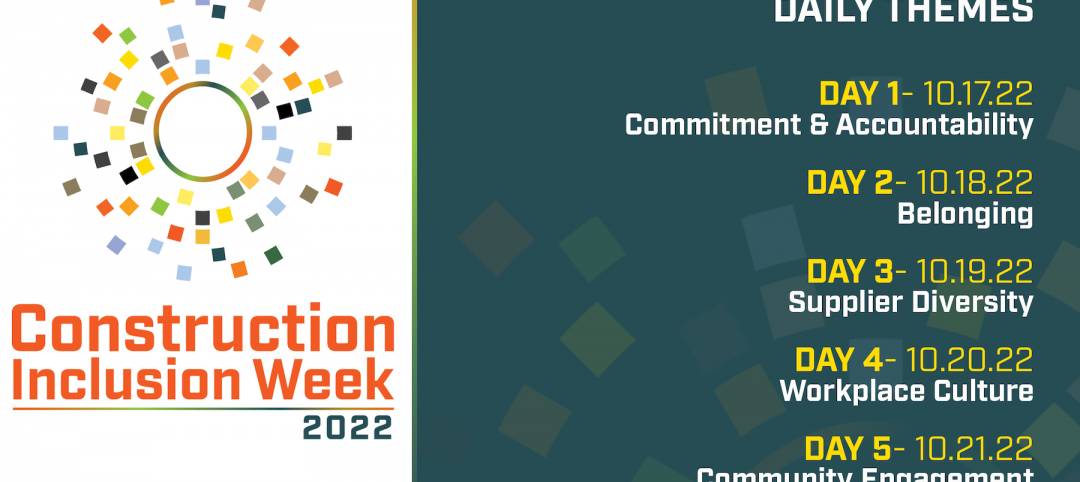The National Council of Architectural Registration Boards (NCARB) has voted to approve significant changes that will streamline and overhaul the Intern Development Program (IDP), which most states require to satisfy experience requirements for initial licensure as an architect. The changes will only be applicable where adoption has occurred by individual jurisdictional licensing boards.
The changes will be implemented in two phases. The first will streamline the program by focusing on the IDP’s core requirements and removing its elective requirements. The second phase will condense the 17 current experience areas into six practice-based categories that will also correspond with the divisions tested in the Architect Registration Examination® (ARE®).
NCARB announced the proposals to modify the IDP in late June at its Annual Business Meeting, which was attended by representatives of its 54 member jurisdiction boards that oversee architect licensing in their states or territories. After reviewing the feedback from the boards, the Board of Directors voted to move forward with both proposals for implementation in mid-2015 and mid-2016.
“Streamlining of the IDP requirements will reduce complexities while ensuring that intern architects still acquire the comprehensive experience that is essential for competent practice, and result in a program that is both justifiable and defensible,” said NCARB President Dale McKinney, FAIA.
Phase 1: Focusing on Core Requirements
The IDP currently requires interns to document 5,600 hours of experience, with 3,740 of those hours as core requirements in specific architectural experience areas. The remaining 1,860 hours are elective hours. The first reinvention phase will streamline the IDP by removing the elective hour requirement, with interns documenting only the 3,740 hours in the 17 core experience areas.
In making its decision to eliminate the elective hours, the Board considered several important statistics:
· The average intern currently takes five years to complete the hours required for IDP and another 2.2 years to complete the ARE, totaling an average of more than seven years from graduation to licensure.
· With this reduction in required IDP hours, it is likely that the average intern will take roughly three to four years to complete their IDP requirements following this change.
· Combined with the time required to complete the ARE, the Board anticipates that the average intern will have five to six years of post-graduation experience prior to qualifying for initial licensure.
Implementation and Jurisdictional Adoption
NCARB expects to implement the first phase on or before June 2015. Many states will need to formally adopt the streamlined program because of how experience requirements for licensure are written in their laws or rules.
“Our planning efforts will include development of a campaign to inform interns of the importance of understanding the variables in jurisdictional laws and rules related to the experience requirement when considering where they will apply for licensure,” McKinney said.
Phase 2: Aligning Internship and Examination
The Board also agreed to a future realignment of the framework of IDP requirements into six experience categories reflecting the six general areas of practice, which were identified by the 2012 NCARB Practice Analysis of Architecture. These changes will mirror the six divisions of a future version of the licensing exam, known as ARE 5.0.
NCARB’s internship-related committees will provide guidance on mapping the existing requirements into the new, overhauled format. This work should be completed and ready for introduction in mid-2016, before the launch of ARE 5.0 in late 2016.
To learn more, NCARB recommends that interns, architects, and other stakeholders visit the NCARB website, blog, and frequently-asked-questions web pages for information as the IDP implementation plan develops.
Related Stories
Building Technology | Jun 9, 2022
GSA Green Proving Ground program selects six innovative building technologies for evaluation
The U.S. General Services Administration’s (GSA) Green Proving Ground program, in collaboration with the U.S. Department of Energy, has selected six innovative building technologies for evaluation in GSA’s inventory.
University Buildings | Jun 9, 2022
IDEA Factory at U. of Maryland defies gravity
The E.A. Fernandez IDEA Factory at the University of Maryland’s A. James Clark School of Engineering has a gravity-defying form: The seven-story building’s solid upper floors emerge above the lighter, mostly glass base.
Multifamily Housing | Jun 9, 2022
Cityview's Adam Perry on multifamily housing innovation in the Western U.S.
Adam Perry, SVP of Development and Construction Management with developer Cityview, chats with Multifamily Design+Construction Editor Rob Cassidy about the latest design and construction innovations for multifamily housing in the West.
Libraries | Jun 8, 2022
Welcome to the hybrid library
Libraries have grown to become the intellectual and social hubs of campus, where, prior to March 2020, students, researchers, and faculty gathered to collaborate and connect.
Building Team | Jun 8, 2022
Alastair MacGregor to lead WSP USA Property and Buildings Business
Alastair (Aly) MacGregor has been named the executive business line leader for Property and Buildings at WSP USA, one of the nation’s largest engineering and professional services consultancies.
Codes and Standards | Jun 8, 2022
Florida Legislature passes bill requiring stricter condominium inspection
The Florida Legislature recently passed a bill to beef up building inspection requirements for many of the state’s condominiums.
Office Buildings | Jun 8, 2022
Former L.A. Times newsroom/printing plant remade into office campus
Phase 1 of The Press, an adaptive reuse project that is converting an old Los Angeles Times facility into a modern office campus, was recently completed in Costa Mesa, Calif.
Codes and Standards | Jun 7, 2022
FEMA launches National Initiative to Advance Building Codes
The U.S. Federal Emergency Management Agency (FEMA) has launched a new government-wide effort to boost national resiliency and reduce energy costs.
Plumbing | Jun 7, 2022
Sloan launches ‘Sinks Beyond the Restroom’ innovation
Sloan, the world’s leading manufacturer of commercial plumbing systems, has launched its ‘Sinks Beyond the Restroom’ concept.
Building Team | Jun 7, 2022
Announcing construction inclusion week 2022: October 17-21, 2022
Save the date for Construction Inclusion Week 2022: October 17-21, 2022.

















